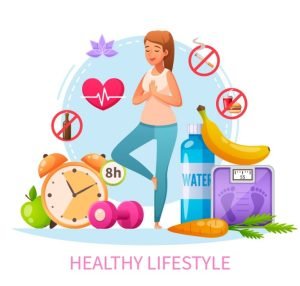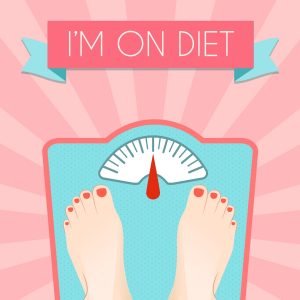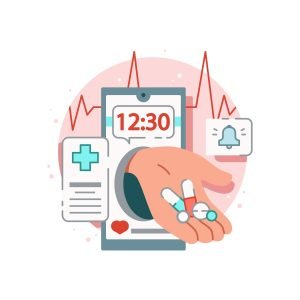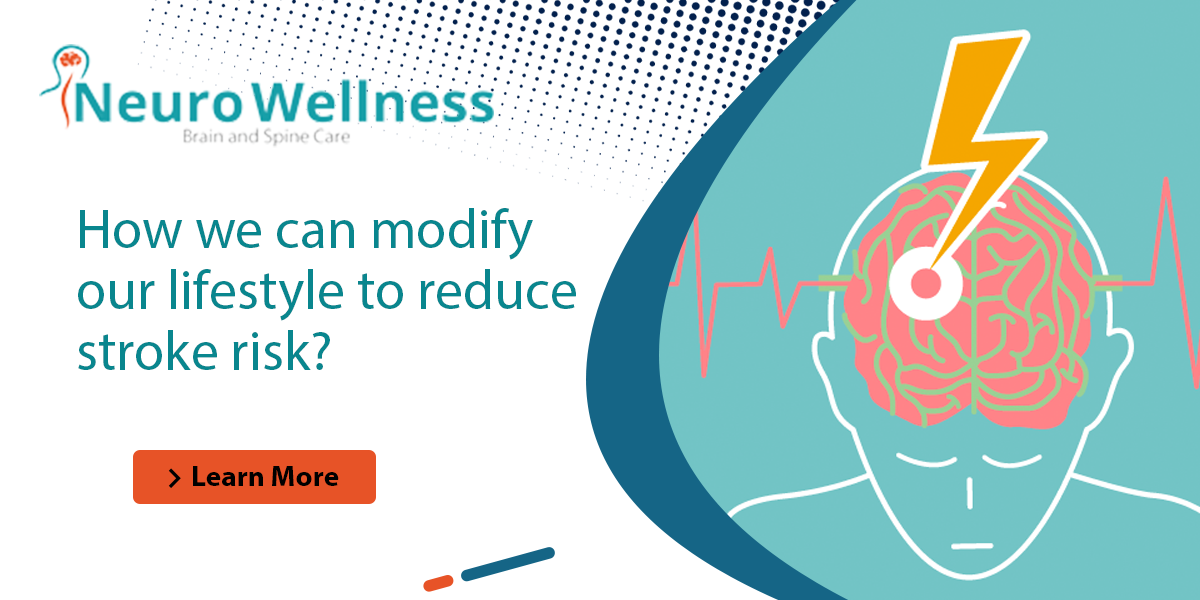Stroke is more prevalent than you would think. Every year, more than 800,000 people experience a stroke, with roughly 200,000 of them being second-time strokes.
However, we can reduce stroke risk easily now!!! Read further to know-how
What if we told you that 90% of these strokes might have been avoided? Wouldn’t it be interesting to learn how? According to a recent study, nine out of ten strokes might be avoided by altering ten key risk factors.
In fact, it is the leading cause of non-traumatic long-term impairment. While certain risk factors, such as age and genetics, cannot be changed, this study discovered that modifying some of the below modifiable risk variables can greatly reduce stroke risk
The following are some lifestyle adjustments that can help you lower your risk. Read the full blog!

What can we do to modify our lifestyle to reduce stroke risk and make ourselves healthier?
Here are some things you can do to improve your health and reduce stroke risk:
- Don’t smoke, if you have just started STOP Now
- Make changes to your food habits. Consuming foods that are low in fat, trans fat, salt, and added sugars are all unhealthy.
- Engage in physical activity every day- a lot-specific time in a day and follow.
- Follow your doctor’s instructions for taking your medication.
- Have your blood pressure examined on a regular basis and attempt to lower it. If it’s too high, talk to your doctor about how to deal with it.
- Achieve and keep a healthy weight.
- Reduce your level of stress.
- Seek emotional support when you need it.
- See a doctor on a regular basis.
Now we will look at the above pointers in brief.
Reduce your weight to reduce stroke risk.

Obesity, along with its consequences (such as high blood pressure and diabetes), increases your chances of having a stroke. If you’re overweight, decreasing only 10 pounds can reduce stroke risk significantly.
Your objective: While a BMI of 25 or below is desirable, it may not be feasible for you. Create a personal weight-loss strategy with your doctor.
How to get there:
Limit your daily caloric intake to 1,500 to 2,000 calories (depending on your activity level and your current BMI).
Increase the amount of exercise you get by walking, or playing sports, and by making physical activities a part of your daily routine.
Increase your physical activity to reduce stroke risk.

Exercise can help you lose weight and lower your blood pressure, but it can also help you prevent strokes on its own.
Your objective is to exercise five days a week at a moderate level.
How to get there:
Start a fitness club.
Try to take the stairs rather than the elevator.
If you don’t have 30 minutes to work out in a row, split it up into a few 10- to 15-minute sessions.
If you are consuming alcohol, do it within the limit. If you have started recently STOP now on.
Diabetic treatment to reduce stroke risk

High blood sugar damages blood arteries, increasing the risk of clot formation.
Your objective is to keep your blood sugar in check.
How to get there:
As advised by your doctor, keep a close eye on your blood sugar levels.
To keep your blood sugar levels within the specified range, use a combination of food, exercise, and medications.
Give up smoking to reduce stroke risk

Smoking has a number of effects on the production of clots. It thickens your blood and causes plaque accumulation in your arteries to rise. Along with a good diet and physical activities, quitting smoking is one of the most effective lifestyle changes you can make to reduce stroke risk.
How to get there:
Consult your doctor for guidance to quit smoking.
Use stop-smoking aids like nicotine tablets or patches, counseling, or prescription to help you quit smoking.
Please don’t give up. Most smokers require many attempts to stop. Consider each attempt as a step toward effectively breaking the habit.
Maintain a balanced diet to reduce stroke risk.

Vegetables, fruits, whole grains, proteins, and fish should all be part of your diet. Limit your intake of refined carbs, meats, and beverages. Reduce salt, added sugars, and saturated fats while avoiding trans fats by reading the nutrition information label on packaged items.
Take your medication as directed to reduce stroke risk.

Your doctor may give statins or other drugs to help regulate cholesterol, blood sugar, and blood pressure if you have a medical problem. Take all drugs exactly as prescribed. However, only use aspirin as a preventative strategy if your doctor recommends it. If you’ve had a heart attack or stroke, your doctor may recommend that you take aspirin at a low dose to lower your chances of having another.
The following are symptoms of a stroke:
- On one side of the body, there is a weakness.
- A feeling of numbness in the face
- Speech dysfunction.
- A strong and unique headache
- Loss of eyesight
- Tingling and numbness
- Difficulty in walking.
Conclusion
Many heart and brain disorders can be delayed or avoided by leading a healthy lifestyle. This includes being active and fit, eating well, not smoking, and controlling diseases that put you at risk. Take responsibility for your health. Join Healthy for Good for information, resources, and inspiration on how to make changes and develop healthy habits that will last a lifetime.
To prevent your chances of stroke, book an appointment with the Neurowellness brain and spine care center as our experts will provide you with the best treatment possible!

